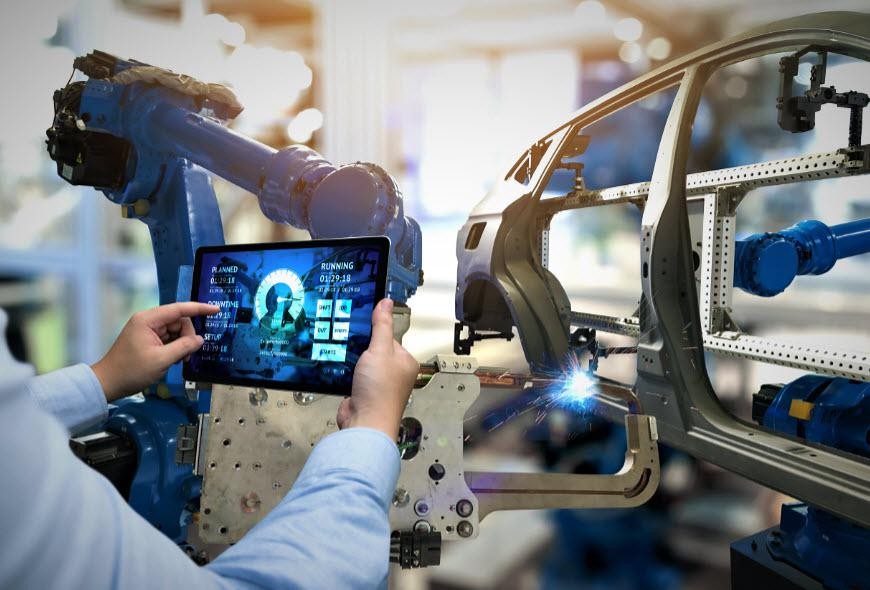In today’s fast-paced manufacturing world, industries are always on the lookout for technologies that can enhance productivity and accuracy. One such groundbreaking innovation is AI-based inspection for ceramics. This technology is transforming how quality control is conducted, ensuring that ceramic products meet the highest standards. But how exactly is AI making a difference in this field?

The Evolution of Ceramic Inspection
Ceramics have been a staple in various industries, from construction to electronics. Traditionally, inspecting ceramics for defects was a manual process, relying heavily on human expertise. However, with the advent of modern technologies, there’s a shift towards automated solutions.
Traditional Methods vs. AI-Based Solutions
Manual inspection methods are time-consuming and prone to errors. Human inspectors can miss subtle defects, leading to compromised product quality. In contrast, AI-based inspection offers a more efficient and accurate alternative. By leveraging machine learning algorithms, AI systems can detect even the minutest defects that might be overlooked by the human eye.
How AI Enhances Quality Control
AI brings a new level of precision to ceramic inspection. By using sophisticated algorithms, AI systems can analyze ceramic surfaces at a microscopic level. This ensures that any anomalies, no matter how small, are identified and addressed promptly. For more on how AI improves inspection in manufacturing, you can refer to this article.
Real-Time Monitoring and Feedback
One of the significant advantages of AI is its ability to provide real-time monitoring. This means that any defects detected can be immediately flagged and rectified, reducing the risk of faulty products reaching the market. This capability is crucial in maintaining high standards in ceramic production.
Benefits of AI in Ceramic Inspection
The integration of AI in ceramic inspection offers numerous benefits. Firstly, it significantly reduces the time taken for quality checks. Automated systems can inspect large volumes of ceramics rapidly, ensuring that production processes remain efficient.
Cost Efficiency and Reduced Waste
By identifying defects early in the production process, AI helps in reducing waste. This not only leads to cost savings but also promotes sustainable manufacturing practices. For more insights on AI’s impact on quality control, you can explore this resource.
AI in Action: Real-World Applications
Several industries have already embraced AI-based inspection for ceramics. From the automotive sector to electronics, companies are reaping the benefits of enhanced inspection processes.
Case Study: Semiconductor Industry
In the semiconductor industry, ceramics play a crucial role. Ensuring their quality is paramount. By implementing AI-based inspection, semiconductor manufacturers can guarantee that their ceramic components meet stringent quality standards. To understand more about AI’s role in this sector, you can visit this link.
Challenges and Future Prospects
While AI offers numerous advantages, its implementation is not without challenges. High initial costs and the need for specialized expertise can be barriers. However, as technology continues to evolve, these challenges are likely to diminish.
The Future of AI in Ceramics
The future of AI-based inspection for ceramics looks promising. As AI technology becomes more advanced, its application in ceramics will only expand. Industries can look forward to even more efficient and accurate inspection processes, ensuring that ceramic products meet the highest standards.
Conclusion
The integration of AI in ceramic inspection is revolutionizing the industry. By offering unparalleled accuracy and efficiency, AI ensures that ceramic products are of top-notch quality. As more industries adopt this technology, the benefits will only continue to grow.

FAQs
1. What is AI-based inspection for ceramics?
AI-based inspection for ceramics involves using artificial intelligence to analyze and detect defects in ceramic products, ensuring they meet quality standards.
2. How does AI improve ceramic inspection?
AI improves ceramic inspection by providing real-time monitoring, reducing human errors, and ensuring even the smallest defects are identified.
3. What are the benefits of using AI in ceramic inspection?
The benefits of using AI in ceramic inspection include increased efficiency, reduced waste, cost savings, and enhanced product quality.
This article contains affiliate links. We may earn a commission at no extra cost to you.

